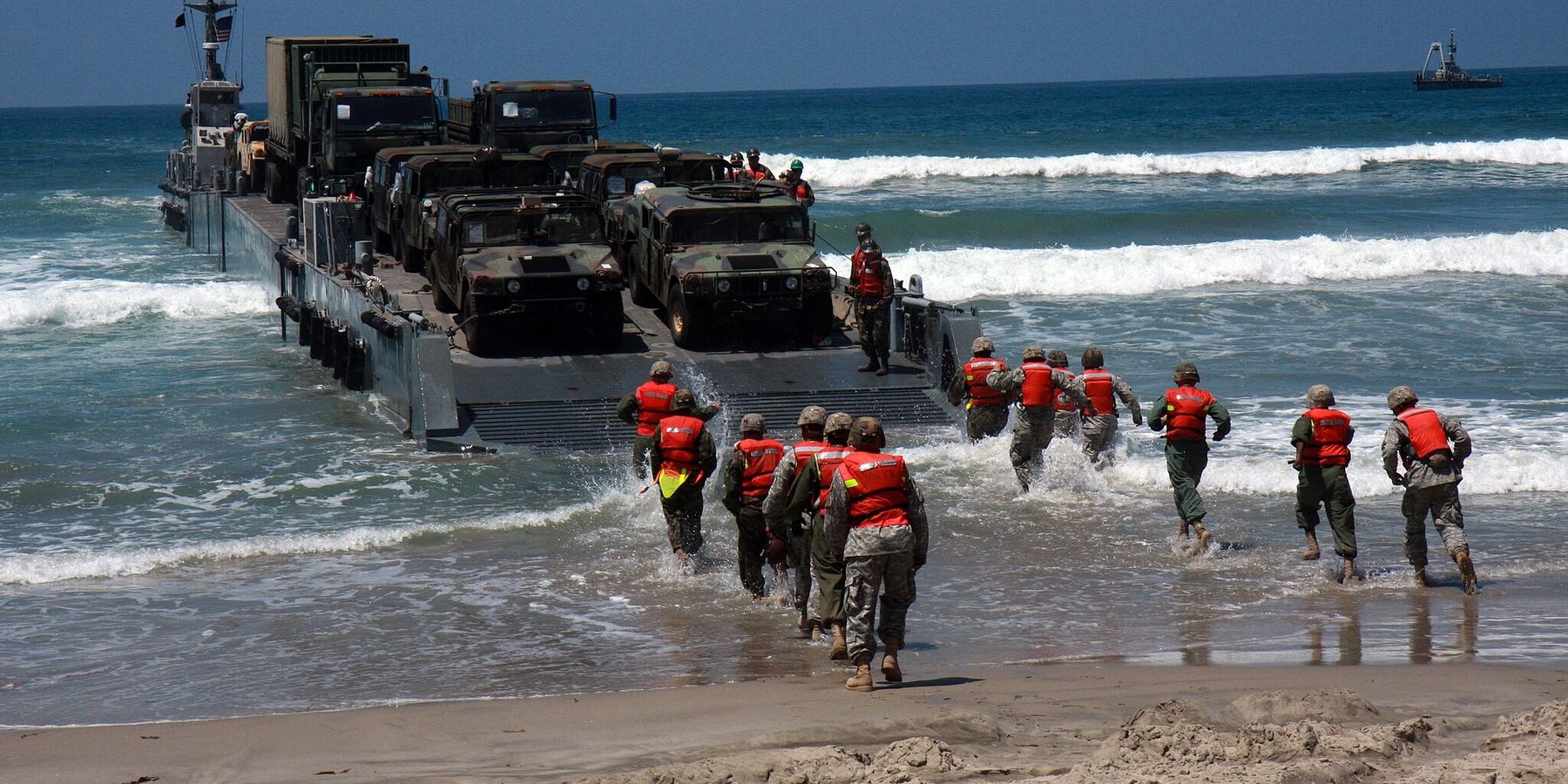The Israeli killing of seven international aid workers this week has already had a chilling effect on the prospects of President Joe Biden’s aid surge project, which is supposed to deploy the U.S. military to build a causeway off the coast of Gaza to deliver food into the strip, ostensibly next month.
Meanwhile, fielding questions from reporters at the White House yesterday after the killing of the World Central Kitchen workers, spokeswoman Karine Jean-Pierre said the temporary pier would be operational “in a couple of weeks.”
This is highly ambitious and likely not true. An Army spokesman claims the ships carrying the supplies for both the floating pier and the causeway that is supposed to be anchored to the yet-to-be-known location on the Gaza beach are “streaming” (POLITICO’s words, more on that below) toward the region, but they still have to build the infrastructure, and most estimates don’t expect completion until May.
More importantly, POLITICO reports that the United Nations' World Food Programme (WFP) was likely tapped by the U.S. to deliver the aid into Gaza once it the hit the beach, but is now having second thoughts because of the World Central Kitchen killings. As reported, Chef Jose Andrés’s organization had been coordinating for months with the Israel Defense Forces (IDF), and their convoy was known to the IDF the day of the deadly strikes. They were targeted and blown to bits anyway.
Now, WFP is denying there was any formal agreement between the aid organization and the U.S., and says it wants more assurances of its people’s safety before going ahead with any such contract.
“Any decision regarding the UN participation in the maritime corridor setup needs to be fully agreed on with the humanitarian agencies operating in Gaza, under conditions that allow for safe, sustained and scaled-up assistance to reach people in need,” Steve Taravella, a spokesman for the WFP said Wednesday.
This comes amid public concerns by former military officials that the project leaves U.S. soldiers vulnerable as they build the causeway, anchor it, and engage partners in the deliveries from Cyprus to Gaza. There are unconfirmed reports that the IDF and private contractors would provide a “security bubble” on the ground, but this week’s killings, plus numerous reports about IDF “kill zones” and AI targeting, not to mention the fact that it is an active war zone, give no confidence to observers who are wondering why the administration does not press Israel to just open up existing aid checkpoints on land instead.
Retired Naval officer Jerry Hendrix was quoted in the Washington Post saying the whole causeway project would leave U.S. troops “highly vulnerable” and calling the plan “stupid.”
Interestingly, the POLITICO story quoted former Deputy Assistant Secretary of Defense for the Middle East Mick Mulroy without noting he was vice president of Fogbow, which is the private company supposedly tapped to help the U.S. military provide logistics and security for the project, according to unconfirmed reports. Even he thinks the World Central Kitchen killings could have “a chilling effect on who will volunteer, who will deliver aid in Gaza,” he told POLITICO.
Mike DiMino, a former CIA analyst and fellow at Defense Priorities, agrees. “The WCK strike completely vindicates the immense and varied potential risks to U.S. personnel that we have repeatedly highlighted,” he told RS Wednesday. “What if (American citizens) are delivering aid ashore, and the IDF suspected a terrorist was among them? Or 'confused' armed security contractors for Hamas operatives? We found out yesterday.”
“Who will want to volunteer for that job now? Looks like the deal is on ice. I'm hoping, frankly, that the WCK incident will kill the pier idea entirely, though I won't hold my breath.”
As for the ships “streaming” into the region, according to satellite readings today only one is within range of Cyrpus, which is where the Army and Navy will begin the process. The fastest among them, the USN Roy Benavidez, is docked in Crete. The USAV Frank Besson, which left the U.S. first on March 10, is off the coast of Algeria. The smaller Army craft Monterrey, Wilson Wharf, Matamoros, and Loux, are now sailing through the Canary Islands in the Atlantic. The Naval vessel Bobo is still in Jacksonville, Florida, and the Lopez hasn’t reached Bermuda yet.
At this rate the Besson will get to Cyprus first (after Benavidez), but not for another week, at least.- Aid workers killed, casting shadow over US pier project ›
- Mission creep: Will pier become a beachhead for US in Gaza? ›
- Where are the US ships on the Gaza aid mission now? ›
- Could the maritime corridor become Gaza’s lifeline? | Responsible Statecraft ›
- Staging ground for US military aid pier in Gaza attacked | Responsible Statecraft ›
















